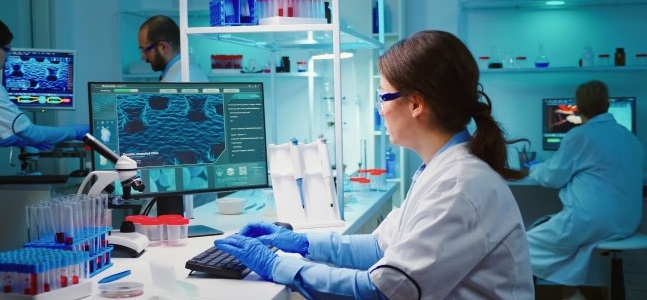When a child is born, the whole family is very happy. After the birth of a baby, hospitals usually focus on the health and well-being of the mother and baby. However, some families have concerns about paternity and ask questions: can a hospital do a DNA test at the time of birth?
The answer to this question is no. Most hospitals do not provide paternity services at the time of birth. However, some hospitals may provide paternity test services at your request.
Can a Hospital do a DNA Test?
A hospital can do a DNA test. Many large hospitals have inbuilt labs. The lab will mostly have all the required equipment and facilities to do any tests, including DNA tests. They can perform DNA tests of any kind whether it’s before birth or after birth.
However, if the hospital doesn’t have a laboratory or the laboratory doesn’t have the equipment to do a DNA test then the hospital will send the sample to another specialized laboratory.
Does the Hospital do free DNA testing after Birth?
Sometimes, the fee for a paternity test at the hospital may be included in the childbirth fee. Otherwise, you have to pay for the test because mostly no hospital offers free paternity tests.
How Long does a DNA test take at the Hospital?
The paternity test after birth is usually the same as the usual paternity test. A specialist collects the saliva of the baby through a cheek swab. To check paternity, specialists will also need a DNA sample of the potential biological father. The child’s mother may also provide a DNA sample for better accuracy. However, sometimes they take blood.
After sample collection, the laboratory will analyze the DNA sample to match the DNA of the father and child. The results may be available in a few weeks. However, in some cases, you can get results within a few hours if you pay an extra fee.
If you buy the KinTouch paternity plus 4 kit, then it can provide DNA test results within 10 minutes and all that without any lengthy and painful procedure.
Amniocentesis for DNA Paternity Testing
Amniocentesis is a prenatal(before birth) procedure used to diagnose potential genetic conditions in a developing fetus. While it can provide valuable information during pregnancy, amniocentesis is not suitable for paternity testing after birth for several reasons:
- Amniocentesis is typically performed between 15 and 20 weeks of pregnancy. By the time a baby is born, the opportunity for this procedure has passed.
- Amniocentesis involves inserting a needle into the amniotic sac to extract a small amount of fluid. This is an invasive procedure that carries a small risk of complications for the mother and the fetus, such as infection or miscarriage. Since paternity testing can be done with a much safer method after birth, amniocentesis is not a reasonable option.
- The primary purpose of amniocentesis is to assess the developing fetus for potential genetic abnormalities. It’s not designed to analyze the biological father’s DNA.
Legal Paternity Testing
If you need paternity test results for legal purposes, such as establishing child support or custody rights, a court-admissible test is required. These tests are performed under stricter chain-of-custody protocols to ensure the validity of the results in court. So that all parties can accept the test results.
Court-admissible tests might require using a specific testing center or having a healthcare professional collect the samples. It’s important to consult with an attorney to understand the specific requirements of your situation.
Benefits of DNA test after Birth:
DNA test after birth is very beneficial for child health. The DNA Paternity test can provide information about any genetic disorder or disease in the early stage and you can plan for the treatment in the initial stage. It can reduce the risk of growing disease.
If your purpose is to determine paternity, then it removes uncertainties in the early stage. This will help to build a stronger bond of parents with their children specifically the father.
DNA tests after birth also save time and sometimes cost. Because you are in the hospital.it is easy to collect samples. It is the best option if the potential biological father will not be available in the future.
Conclusion
After the birth of a child, instead of child health, some people may be more focused on the paternity test of the child at the hospital. Usually, hospitals don’t do DNA tests after birth, however, they may provide test services if you request them. Amniocentesis is not possible after the birth of a child. In legal cases, there may be strict rules to follow. Except for establishing paternity, a DNA test after birth provides health benefits as well by analyzing any genetics diseases in the early stage.
Frequently Asked Question
Ans: Yes, DNA samples can be collected at the hospital. However, you may need permission from the hospital. Sometimes, if the hospital has an inbuild lab then the hospital may collect DNA samples as well for analysis.
Ans: Yes, the results can be used in court but for that, you need a test from a laboratory that is approved by the required institution. It is better to inform the laboratory before the test that you need a test for legal purposes.
Ans: Hospitals don’t offer a DNA test free to establish paternity. The cost may differ from laboratory to laboratory. Normally, it costs from $200 – $500.




